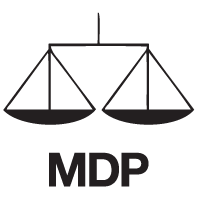On 16 February, the Supreme Court, in a hitherto unprecedented and one of the most glaring moves by a Maldivian court, sacked a Civil Court judge, Mariyam Waheed.
The sacking was preceded by the apex court striking down Judge Waheed’s ruling against the Government in a long-running resort lease dispute. The Supreme Court then followed their ruling by sacking the judge who delivered the verdict.
On 16 February, Judge Waheed had ordered the Government of Maldives to hand over the island of Bodumohoraa in Vaavu atoll to Marine Technology Maldives, as per the joint venture of 2014. She was ordering the implementation of a Civil Court ruling from 2014, the only standing order on the case.
However, the Supreme Court viewed Judge Waheed’s ruling as defiance of an earlier opinion published by the Registrar of the Supreme Court, stating that the Government was not obliged to hand over the island for resort development.
In Thursday’s unprecedented order, the apex Court sacked Judge Mariyam Waheed declaring that she “does not have any capacity…or the ethical standards… to preside over trials in any Maldivian court.”
The order also said the Judge’s “defiance” amounted to a breach of the Maldivian Constitution, violated the Judicature Act and the Judges Act.
Even by the standards of the Maldives judiciary, the Supreme Court’s removal of the Judge is one of the most flagrant abuses of power. While removal of judges by another judge or Court is unheard of, the Court’s actions clearly usurp the exclusive mandate of the Parliament in removal of Judges. Through the unconstitutional and abrupt removal of Judge Waheed, the Supreme Court has now removed the constitutional guarantees and protections afforded to all Judges, and these actions, bypassing all rules of fairness, also render the judicial watchdog- the Judicial Services Commission – redundant, in its role of disciplining judges.
Removal of Judge Waheed, the only female judge left in the Civil Court of the Maldives, is parallel to the Supreme Court’s actions in 2014, when the apex court removed the Commissioner of Elections and Deputy Commissioner of Elections, just days before the 2014 general elections. Removal of Commissioners of independent bodies is the stated purview of the Parliament, and the Supreme Court’s actions, then too, were a deliberate encroaching of Parliamentary powers.
These actions have not, to this day, been addressed, condemned or rectified by the Government of Maldives, which holds absolute majority in Parliament.
President Yameen had privately and repeatedly expressed frustration and displeasure at the 2014 Civil Court’s orders to hand over the island to be leased as a resort. President Yameen’s Minister of Tourism had refused to implement the ruling for nearly 3 years. The unlawful sacking of Judge Mariyam Waheed is nothing short of the Executive bending the highest court in the country to do the President’s bidding.
With this brazen ruling, the Maldivian Judiciary is signalling a warning of consequences for Judges who do not abide by the Government’s interests, and specifically President Yameen’s interests. These actions also undermine any semblance of faith the people of the Maldives had in the Maldivian judicial system, and erodes any remaining hope of a functional system of checks and balances. The Supreme Court’s ruling also severely undercuts the already precarious investor confidentiality in the country.
Government’s recent actions including finalising of plans to sell the entire atoll of Faafu Atoll to Saudi Arabia without a transparent process or public consultation, forceful takeover of the PPM through intimidation and harassment of former President Maumoon Abdul Gayoom, Maldives Police Service’ engagement with Yameen’s faction of PPM in raiding the party headquarters, coercion of state employees to join the ruling party, delaying of the local council elections multiple times demonstrates intensified authoritarian rule ahead of the 2018 elections.
“Echoing the increasingly shameless actions of the Government, the judiciary has become increasingly unapologetic in their recurring actions of unconstitutionality. With the absolute breakdown of separation of powers and the complete erosion of judicial accountability, just like Judge Waheed, the Maldivian people have no recourse left, as we approach the 2018 Presidential election.” Said MDP Spokesperson Hamid Abdul Ghafoor.
ENDS
